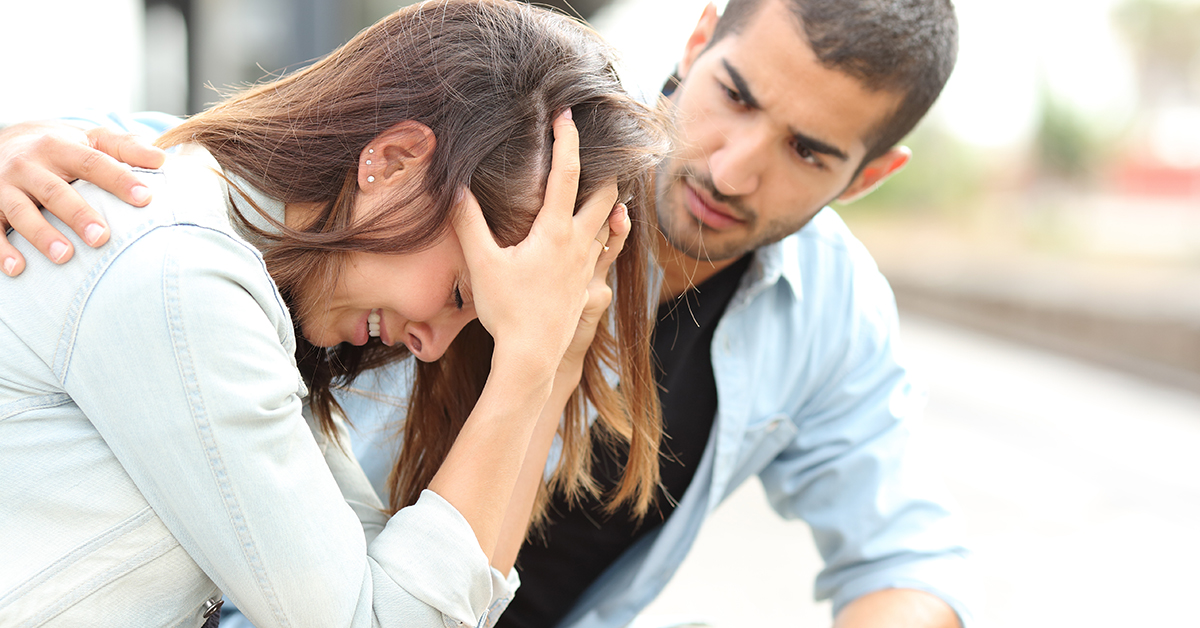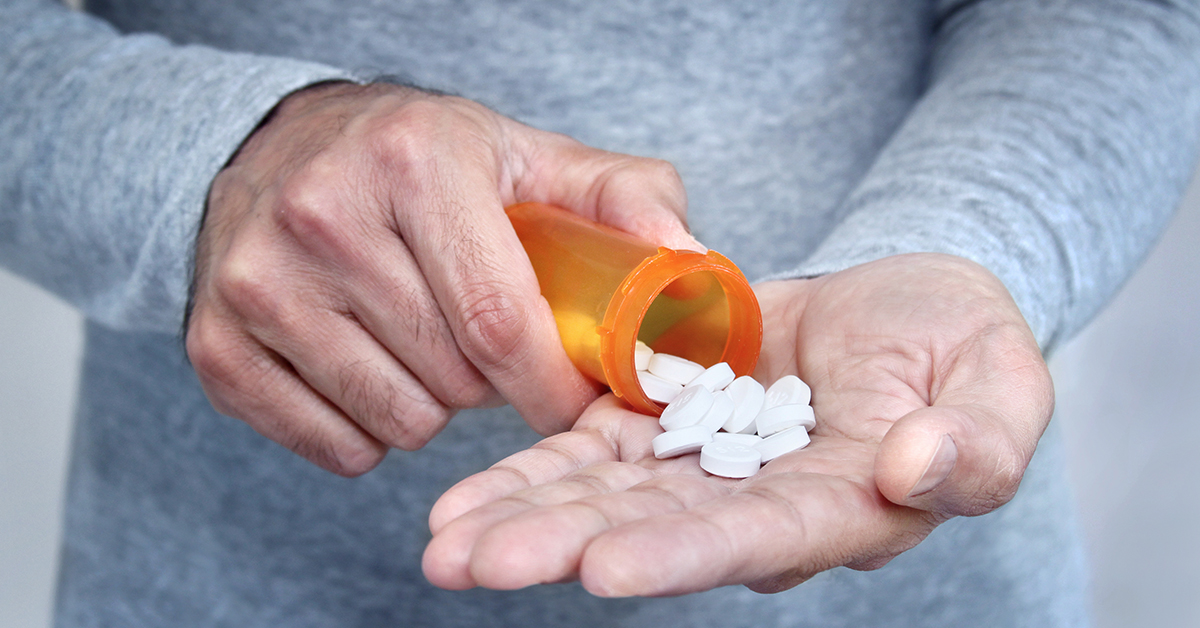
08 Jan Teenage Drug Abuse in Georgia: Know the Facts
Table of Content
Even though the percentages and frequency of particular public health crises facing teenagers differs for every state in the country, they all have their common problems that must be discussed and tackled. In Georgia, one of the toughest challenges facing lawmakers and parents is addressing teenage drug abuse. Medical professionals all agree that the earlier a person starts using drugs, the likelier they are to develop substance abuse disorder, so it behooves the people of Georgia to try and further curb drug abuse by the youth.
In a recent CDC study, 11.1% of American citizens ages 13 and up use an illicit drug at least one time per month. In Georgia, some 70,000 adolescents, reported illicit drug use within the past year. “35% of the teenage Georgians surveyed said that they did not believe smoking at least one pack of cigarettes daily to be a significant risk. 56% of teenagers did not believe drinking five or more drinks more than once a week to be hazardous to health.” Drug or alcohol addiction obviously has direct and negative ramifications to one’s health and future, but there are a host of side effects that ripple out and affect the state as a whole such as increases to crime, poverty and fatality rates.

Teenage drug use is one the most dire hurdles that the state’s population must overcome. In order to meet this problem head on, we must educate and take action. Teens who consistently learn about the risks of drugs from their parents are up to 50% less likely to use drugs than those who don’t. So, if you are a parent, you should know: why teenager’s turn to drugs, the common drugs used by Georgian teens and what options you have if your teen has a substance abuse problem.
Why Georgian Teens Use
Our teenage years are a formative time in the transition from childhood to adulthood. During this stage young people start to move out from the protective wings of their parents and begin to assert their own independence. Much of this involves questioning what they have been told and taught, trying out new things, experiences or ideas and seeing what they believe. Obviously, this can be both a good and bad thing. It is important that we eventually become independent people, establish our own identities and forge our own path. Unfortunately, many teenagers do so by pushing the boundaries and dabbling with legal substances that they have seen their parents use or illegal substances that they have seen their friends or peers use. For the vast majority of Georgian teenagers, this trip down the proverbial rabbits hole begins with cigarettes and alcohol and then branches into marijuana, painkillers and other recreational drugs such as cocaine, LSD and ecstasy.
There are a whole host of reasons why Georgian teenagers may first try drugs including:
- Act of Rebellion – The authority figures in their life tell them not to do something and they decide to do the exact opposite. During this phase, many teenagers want to throw off the “shackles” of their parent’s rule, they want to be their own people. Their mother or father says up and they say down. In a sheer act of defiance they go directly against whatever their parent tells them just to prove that they are independent.
- Approval – They witness their parents and friends doing the drug and feel like they are missing out on the fun time. They do not want to be the odd man out and desire approval and acceptance from those they admire.
- Boredom – Boredom can be a great thing. It can inspire the imagination, encourage day dreaming and creativity; it teaches us that not every moment needs to be filled with constant stimulation. One of the unfortunate offshoots of the technological age and our instant gratification culture is our youth do not know how to be bored or without stimulation. Because of this, some Georgian teens turn to drugs because they feel like they have nothing better to do, so why not try these substances and feel great.
- Curiosity – Teenagers are observant and are constantly absorbing and processing new information. They have seen other use and seen the effect that marijuana or alcohol or some other substance had on them and want to test it out for themselves. Their parents tell them that it’s dangerous and for some, that makes them want to see if that’s true. They want to know what it’s like to be drunk or to be high.
- Peer Pressure – Their peers and friends are doing it and pressure them to conform, to fit in with the rest of the crowd. Teenagers do not like to be socially isolated from those they like, so they join the herd. They fear rejection, do not want to be made fun or potentially lose a friend. So, they give in, relent, and join the pack rather than be ostracized or made to seem like the only one who is not an adult or their own person.
- Pleasure Seeking – The teenage years can be extremely difficult and taxing both emotionally and psychologically. Their hormones are going crazy and their bodies are undergoing drastic changes. Often times they are not yet equipped to deal with the hardship of life and the societal pressures of adulthood. In order to numb the pain or to silence the emotional agony, many Georgian teens turn to drugs or alcohol to mask their internal agony. They want to feel good and happy and turn to drugs to make them feel that way.
- Poor Parenting – Some teenagers do not have parents who serve as good role models. They see what their parents do and seek to emulate them. They see how their parents deal with hardship and then do the same because that is all they know. If you are an alcoholic, your teenager is far more likely to turn to alcohol than if you demonstrated restraint and set boundaries. Young people need and want guidelines, even if they say they don’t, even if they break them, especially during their formative years.

Common Drugs Abused by Georgian Teens
There are a variety of drugs and substances used and abused by teenagers within the state, but below are the most commonly used by people under the age of twenty.
Alcohol
According to a state study in 2013, underage drinking cost the people of Georgia $1.2 billion annually due to medical care, pain and suffering and work loss. On average, 700 teenagers are admitted for alcohol treatment, annually, accounting for 4% of all treatment admissions within the state. It is estimated that 300,000 teenagers drink at least one time every single year. A Georgian Youth Risk Behavior Surveillance study by the CDC reported the following:
- 59.2% of teenagers had at least one drink of alcohol on one or more days during their life.
- 18.1% of teenagers had their first drink of alcohol, other than a few sips, before age 13.
- 27.9% of teenagers had at least one drink of alcohol on one or more occasions in the past 30 days.
- 13.3% of teenagers had five or more drinks of alcohol in a row (binge drinking) in the past 30 days.
“During 2012, an estimated 33 traffic fatalities and 1,602 nonfatal traffic injuries were attributable to driving after underage drinking. An estimated 37 homicides; 16,000 nonfatal violent crimes such as rape, robbery, and assault; 31,700 property crimes including burglary, larceny, and car theft; and 594,000 public order crimes including vandalism, disorderly conduct, loitering, and curfew violations were attributable to underage drinking. In 2013, an estimated 761 teen pregnancies and 21,882 teens having high-risk sex were attributable to underage drinking.”
Marijuana Abuse
Marijuana is the most commonly used illicit drug in the United States for adults, but particularly for people under the age of 20. Georgia is no outlier here and falls right along the line of national averages. An estimated 106,000 teenagers within the state reported using marijuana at least one time in the past year. Georgia is one of 10 states with the highest rate of monthly adolescent’s marijuana use. According to the CDC, one third of all Georgian teens have tried marijuana at least one time. While marijuana is not deadly in and of itself, with no risk of overdoses, there are serious ramifications to marijuana use for teenagers. Using marijuana while developmental changes are occurring can have lasting and harmful effects on their developing brain. Marijuana can also lead to a host of negative physical effects such as, elevated heart rates and blood pressures, poor lung health and respiratory issues. Teenagers that use can also develop emotional addiction to marijuana that stunts their ability to deal with pressure and in turn leads to declining academic performance and other problematic behaviors.
Other Substances
While specific studies and numbers within the state of Georgia are difficult to come by, harder drugs such as cocaine, opiates, psychedelics and psychoactive drugs do pose a serious issue to the teens of Georgia. Opiates, specifically, are the number one threat to Georgian youths. On average, 1,300 Georgians citizens overdose on opiates annually. A reported 4.6% of Georgian citizens, used pain relievers for non medical purposes and during the same time, 6.24% of Georgian teenagers reported using pain pills non-medically. Shockingly, roughly 50% of high school seniors within the state do not believe it is harmful to try crack or cocaine once or twice and 40% believe it’s not harmful to use heroin once or twice. The fact that almost one in two teenagers think it is not a big deal to try heroin a single time is terrifying. Each and every one of these substances can and do have extremely negative consequences to teenage youth and can lead to addiction and overdoses.
What are Your Options if Your Teenager is Abusing Drugs?
If your teenager is abusing drugs and you are seeking treatment, it is important that you act quickly and decisively. They may think they are adults, but they are not, they are your child and your responsibility. When considering treatment, be sure to seek out medical professionals and therapists to aid you with the planning and consummation of the detoxification process. This process can be very difficult and painful and the smartest way to attack the problem is by picking the right treatment center. Addiction treatment centers fall into one of two categories: inpatient and outpatient.
In Patient Treatment – also known as residential treatment centers are places where a teenage substance abuser can go to get clean from whatever their addiction. Generally, the patient will stay for a longer duration of time with the most common intervals being 30, 60 and 90 day periods. There, they will be medically supervised during the detox process so that they are safe during the withdrawal period. After, they will continue to live there in a drug free environment surrounded by counselors, therapists and other substance abusers who can help equip them for the fight ahead. Medical experts agree that extended care is a significant factor in preventing a future relapse.
Outpatient Treatment – If you do not have the money to send your teenager to a residential treatment center, outpatient treatment delivers the same medical care throughout the detoxification process. After they help your teenager join a post detox recovery program that includes AA, group therapy and individual therapy sessions. While this is the cheaper of the two options, it is not considered to be as effective a method as in patient. That said, it can be very beneficial, but it does requires that you and your teenager be proactive about recovery and relapse prevention.
Conclusions
Like every state in the country, Georgia has its hands full with teenage drug abuse. As a parent, it is wise to know why teenagers may turn to drugs and be aware of what your kids are doing and what example you are setting. If your teenager is using drugs, there are many options within the state that have been proven to be effective in combating substance abuse. So, be proactive and encouraging as they head down the road to recovery.
Sources:
“Georgia Adolescent Substance Abuse Facts.” HHS.gov. 13 Mar. 2019. https://www.hhs.gov/ash/oah/facts-and-stats/national-and-state-data-sheets/adolescents-and-substance-abuse/georgia/index.html
“Teen Drug and Alcohol Statistics and Information.” Project Know. 13 Mar. 2019. https://www.projectknow.com/teen/abuse-statistics/
“Teen Drug Abuse.” Addiction Center. 13 Mar. 2019. https://www.addictioncenter.com/teenage-drug-abuse/



 678-771-6411
678-771-6411


No Comments